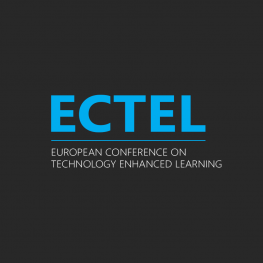Speakers
Wicaksono Febriantoro
University College London, UKRafael Ferreira Mello
Rural Federal University of Pernambuco, BrasilLukas Menzel
Goethe University Frankfurt, GermanyStart
07/09/2023 - 11:00
End
07/09/2023 - 13:00
Address
Room 40.1.8 View mapSession 5: Computer-Supported Collaborative Learning
Chair:  Armin Weinberger
Armin Weinberger
The Promise of Physiological Data in Collaborative Learning: A Systematic Literature Review
Wicaksono Febriantoro, Andrea Gauthier and Mutlu Cukurova
Abstract: Collaborative learning is an important approach in education. Researchers are increasingly interested in using physiological data, such as Electrodermal Activity (EDA), as an objective tool to measure bodily reactions during collaborative activities. However, it remains unclear how physiological data can contribute to our understanding, monitoring and support of the collaborative learning process. To address this gap, a Systematic Literature Review (SLR) was conducted, focusing on the contribution of physiological data to collaborative learning, the features of physiological data that cor-relate with effective outcomes, and interventions designed to support collaboration based on physiological data. The review identified 13 relevant publications that revealed physiological data can indeed be useful for detecting certain aspects of collaboration including students’ cognitive, behavioural, and affective (emotion and motivation) states. Physiological arousal in the form of EDA peaks and physiological synchrony (interdependence or associated activity between individuals’ physiological signals) were the most commonly used features. Surprisingly, only one publication presented a prototype of a learning analytics dashboard that used physiological data to guide student reflections. Furthermore, the review highlights the potential for integrating physiological measures with other data sources, such as speech, eye gaze, and facial expression, to uncover psychophysiological reactions and accompanying social and contextual processes related to collaborative learning. Future research should consider embedding methods for the physiological detection and modelling of learn-ing constructs within explicit, feedback-driven interventions for collaborative learning.
📄 Read More: https://link.springer.com/chapter/10.1007/978-3-031-42682-7_6
Understanding CSCL Peer Feedback Contributions: An Automated Content Analysis Approach
Mayara Simões de Oliveira Castro, Rafael Ferreira Mello, Giuseppe Fiorentino Neto, Olga Viberg, Daniel Spikol, Martine Baars and Dragan Gasevic
Abstract: Peer feedback has been widely used in computer-supported collaborative learning (CSCL) setting to improve students’ engagement with massive courses. Although the peer feedback process increases students’ self-regulatory practice, metacognition, and academic achievement, instructors need to go through large amounts of feedback text data which is much more time-consuming. To address this challenge, the present study proposes an automated content analysis approach to identify relevant categories in peer feedback based on traditional and sequence-based classifiers using TF-IDF and content-independent features. We use a data set from an extensive course (N = 231 students) in the setting of engineering higher education. In particular, a total of 2,444 peer feedback messages were analyzed. The results have shown promising outcomes with both TF-IDF and content-independent features. The Conditional Random Fields (CRF) classification model based on the TF-IDF features achieved the best performance, considering all the metrics computed in the analysis. The results illustrate that the ability to scale up the automatic analysis of peer feedback provides new opportunities for student improved learning and improved teacher support in higher education at scale.
📄 Read More: https://link.springer.com/chapter/10.1007/978-3-031-42682-7_27
Why you should give your Students Automatic Process Feedback on their Collaboration: Evidence from a Randomized Experiment
Lukas Menzel, Sebastian Gombert, Joshua Weidlich, Hendrik Drachsler, Aron Fink and Andreas Frey
Abstract: In Computer-Supported Collaborative Learning (CSCL), students learn in small groups to achieve learning benefits outside what would be possible for individual students. As in other forms of learning, for optimal outcomes, students need feedback on the quality of their work. Still, writing high-quality informative feedback requires time on the part of educators. This presents an obstacle to the feasibility of providing quality feedback at scale. Given the importance of group dynamics in CSCL, quality feedback should also contain information about group processes and discussion quality. Emergent roles provide a natural anchor point for this. We propose a method for automatically providing highly-informative, textual feedback for CSCL forum discussion tasks in a teacher education introductory class. We provide process feedback on the group communication of individual students. This feedback is generated from several discourse indicators, that are then used to derive the emergent roles of the students, from which feedback about strengths and potential for improvement is derived. In a randomized control trial, we show that the highly informative feedback generated with our method is preferred by the students. Implications and avenues for future research are discussed in light of these findings.
📄 Read More: https://link.springer.com/chapter/10.1007/978-3-031-42682-7_14

